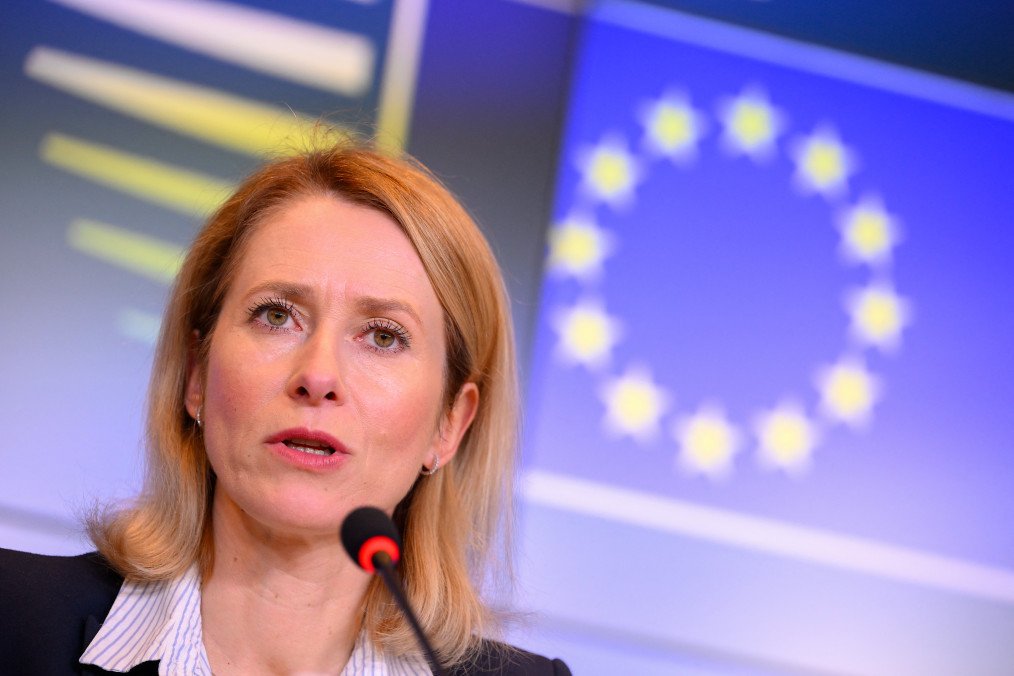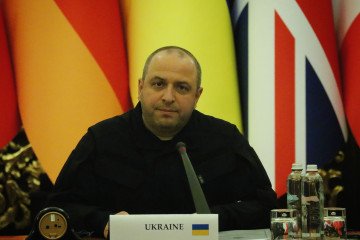The European Union will never recognize Russia’s annexation of Crimea, regardless of diplomatic shifts by other global powers, EU foreign policy chief Kaja Kallas said in an interview with the Financial Times published on April 30.
Kallas reaffirmed the EU’s longstanding position amid growing speculation that the United States may be pressuring Ukraine to accept a peace plan requiring territorial concessions.
The comments come as US President Donald Trump’s administration continues to advocate for a ceasefire deal that would include formal recognition of Russia’s control over Crimea and a path toward lifting sanctions imposed on Moscow since 2014.
“Crimea is Ukraine,” Kallas said. “We’ve said this over and over again. But we can’t speak for America and what decisions it might take.”
Axios recently reported that a draft peace proposal from Washington calls not only for de jure recognition of Russia’s claim to Crimea but also for tacit acknowledgment of its occupation of other Ukrainian territories.
The plan reportedly includes provisions for rolling back US sanctions, contingent on Russia's cooperation.
Kallas said the EU is preparing a contingency plan—referred to as “Plan B”—to maintain its sanctions regime in the event that the US withdraws from the current diplomatic process and seeks to restore ties with Russia.
The existing sanctions package is set to be renewed in July but could be blocked by Hungary, which has increasingly distanced itself from the EU consensus on Ukraine.
-da4515fb0472e9bba09009456e39ca79.jpg)
While the primary goal remains to keep all 27 EU member states united on Ukraine policy, Kallas acknowledged that some European governments are privately considering aligning with Washington should the US pull back.
“But it’s a false hope,” she warned. “Russia is spending over 9 percent of its GDP on the military—they will want to use it again.”
Kallas said the EU could offer financial support to Ukraine if the US scales down its involvement, but admitted that replacing American military assistance would be far more difficult.
She also emphasized that European officials are continuing to engage with Washington to underline the strategic importance of preventing a Russian victory.
Trump, who entered office promising a swift resolution to the war, has so far been unable to secure a breakthrough as both Kyiv and Moscow reject key aspects of US proposals. Nearly two months have passed since Ukraine accepted a US-brokered 30-day ceasefire proposal introduced in March. Russia rejected the offer, instead demanding a complete halt to Western military aid to Ukraine.
Despite claiming to support de-escalation, Russia has continued offensive operations along the front lines. A separate partial ceasefire intended to protect Ukraine’s energy infrastructure—brokered during a March 18 call between Russian leader Vladimir Putin and Trump—has also been repeatedly violated.
Earlier, on April 27, US Secretary of State Marco Rubio stated that the upcoming week will be critical for negotiations aimed at ending the war between Russia and Ukraine.




-111f0e5095e02c02446ffed57bfb0ab1.jpeg)


